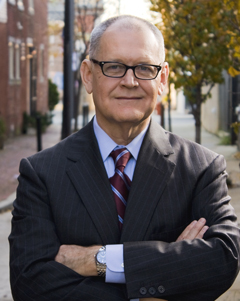Reform Already Saving Lives of Many Americans
 Is the health care reform law a good deal for Americans, or is it so badly flawed that Congress should repeal it? Now that the measure is one year old -- President Obama signed the Patient Protection and Affordable Care Act to law on March 23, 2010 -- I humbly suggest we attempt an unbiased assessment of what the law really means to us, and where we need to go from here.
Is the health care reform law a good deal for Americans, or is it so badly flawed that Congress should repeal it? Now that the measure is one year old -- President Obama signed the Patient Protection and Affordable Care Act to law on March 23, 2010 -- I humbly suggest we attempt an unbiased assessment of what the law really means to us, and where we need to go from here.
To do that in a meaningful way, we must remind ourselves why reform was necessary in the first place. I believe the heated rhetoric we've been exposed to since the reform debate began has obscured the harsh realities of a health care system that failed to meet the needs of an ever-growing number of Americans.
